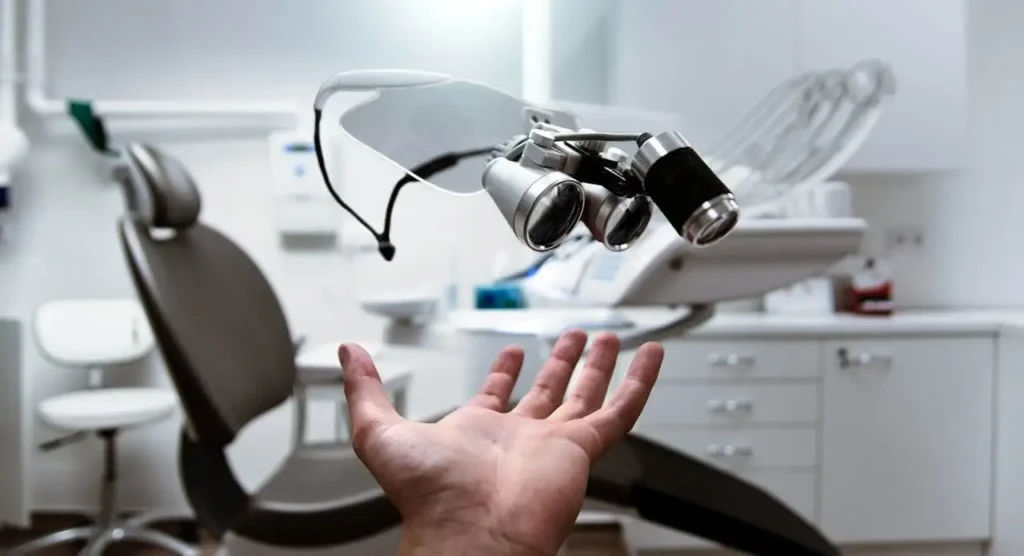The healthcare sector is under a huge amount of pressure, and struggles to keep up with demand. Artificial intelligence could help solve several of the challenges faced by the medical and healthcare industry.
The benefits of AI in healthcare have the potential to reshape how healthcare is delivered. This technology is designed to simplify human tasks, rather than replace them. The goal is to create a future where healthcare is more precise, proactive, and accessible.
Let’s explore the key benefits of AI in healthcare and how it’s tackling some of the industry’s most pressing challenges.
What Is Artificial Intelligence in Healthcare?
Artificial Intelligence (AI) in healthcare refers to the use of algorithms and software to mimic human cognition in the analysis, interpretation, and comprehension of medical and healthcare data. Its primary aim is to analyze relationships between prevention or treatment techniques and patient outcomes.

Key subfields driving this change include the following:
Machine Learning (ML)
ML is at the core of most AI applications in healthcare. It involves training algorithms on large datasets to identify patterns and make predictions, such as forecasting disease progression.
Natural Language Processing (NLP)
This enables computers to understand, interpret, and generate human language. NLP is used to extract information from doctors’ notes, clinical research, and patient records.
Computer Vision
This allows AI to derive meaningful information from digital images, videos, and other visual inputs. It’s used in the analysis of MRIs, CT scans, and X-rays to detect anomalies.
Why Healthcare Needs AI: Current System Challenges
The traditional healthcare system is buckling under pressure, creating a need for intelligent solutions.
Workforce Shortages
There is a growing gap between the number of healthcare providers and an aging population that requires more care, leading to clinician burnout.
Diagnostic Delays
Manual analysis of medical images and tests can be time-consuming, potentially leading to delays in diagnosis and treatment, which can negatively impact patient outcomes.
Rising Healthcare Costs
Inefficient operations, slow administration, and the high cost of advanced procedures are making healthcare prohibitively expensive.
Inefficiencies in Hospital Admin Tasks
A large amount of clinician time is consumed by administrative paperwork, electronic health record (EHR) data entry, and managing schedules. These delays can negatively impact patient care.
10 Benefits of Artificial Intelligence in Healthcare
The advantages of AI in healthcare are expanding and directly target these systemic challenges. Here are ten of the most impactful benefits of AI in healthcare:
1. Enhanced Diagnostic Accuracy
AI algorithms, particularly in computer vision, can analyze medical images (like mammograms, retinal scans, or CT scans) with a level of precision that can surpass the human eye. They can detect subtle patterns and early signs of diseases like cancer or diabetic retinopathy, leading to earlier and more accurate diagnoses.
2. Personalized Treatment Plans
AI can analyze a patient’s unique genetic makeup, lifestyle, and medical history to recommend personalized treatment and medication plans. This approach, known as precision medicine, increases the efficacy of treatments and reduces the risk of adverse reactions.
3. Drug Discovery and Development
AI is dramatically accelerating the drug discovery process. By analyzing massive databases of molecular structures, AI can predict how compounds will interact, identifying promising drug candidates in a fraction of the time and cost of traditional methods.
4. Streamlined Administrative Workflows
NLP-powered tools can automate tasks such as transcribing patient notes, coding medical records, processing insurance claims, and managing appointment schedules. This automation frees staff to focus more on patient care.
5. Predictive Analytics for Proactive Care
ML models can analyze patient data to identify individuals at high risk of developing certain conditions (such as heart disease or diabetes) before they become critical. This allows healthcare providers to intervene early with preventive care strategies.
6. Robotic-Assisted Surgery
Surgeons are using AI-powered robotic systems to perform procedures with enhanced precision and control. These systems minimize tremors, enable smaller incisions, and reduce blood loss. This leads to quicker patient recovery times.
7. Virtual Nursing Assistants
AI-powered chatbots and virtual assistants can provide 24/7 support to patients, answering routine questions and monitoring symptoms. This offers patients constant support and reduces the burden on nursing staff.
8. Improved Medical Research
AI can quickly analyze millions of clinical trial data points, scientific papers, and patient records. This is useful in identifying viable candidates for trials and accelerates medical research.

9. Remote Patient Monitoring
Wearable devices and sensors collect continuous patient health data (such as heart rate and blood sugar). AI interprets this data in real-time to alert patients and doctors to potential health issues. These devices make it easier for patients to monitor chronic conditions from home.
10. Reduced Healthcare Costs
AI reduces overall costs for providers and patients by improving administrative processes, enabling early intervention, shortening hospital stays, and enhancing hospital efficiency. This makes high-quality care more affordable.
Book Your Spot in Our AI Strategy Workshop Now
Understanding the potential of AI is the first step. Implementing it effectively is the next. Our upcoming workshop is designed to help healthcare providers, administrators, and pharma companies navigate the AI landscape and understand its advantages. You will learn how to identify the right use cases for your organization and build a roadmap for successful AI adoption. Click here to secure your spot and future-proof your healthcare services.
AI as a Helping Hand
The benefits of AI in healthcare are shifting the system toward more effective and patient-centred care. By reducing diagnostic delays, easing administrative burdens, and lowering costs, AI helps medical professionals to provide expert care with compassion and efficiency.
FAQs
How Does AI Improve Diagnosis in Medicine?
AI can interpret medical images and patient data to identify patterns and detect diseases like cancer earlier and with greater accuracy than the human eye alone.
Can AI Help Doctors Make Better Medical Decisions?
Yes, AI provides evidence-based treatment recommendations and predicts patient risks, supporting doctors in making better clinical decisions.
What Are Real-World Examples of AI in Healthcare Today?
Real-world examples include AI algorithms that analyze X-rays and CT scans for abnormalities and virtual nursing assistants that monitor patients and provide support.
How Does AI Reduce Human Error in Healthcare?
AI reduces human error by offering data-driven second opinions to prevent diagnostic oversights and by automating routine, error-prone administrative tasks.
Recent Posts
-
Published on: July 8, 2025
-
Published on: July 1, 2025
-
Published on: June 24, 2025




